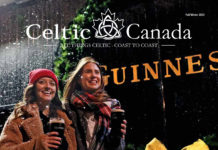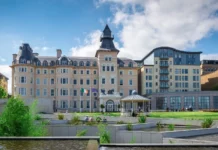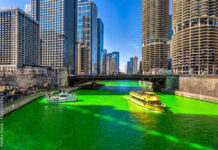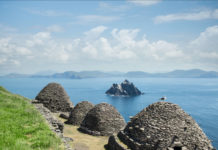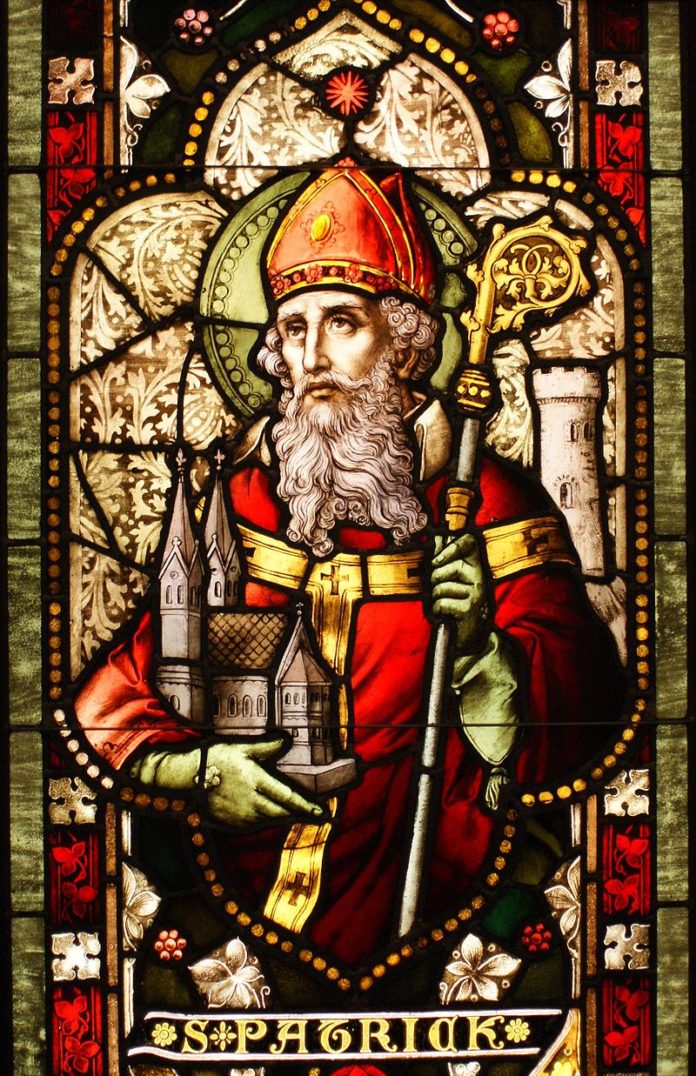The story of St Patrick has fascinated the world for centuries, and you can still see his legacy clearly all around the island of Ireland
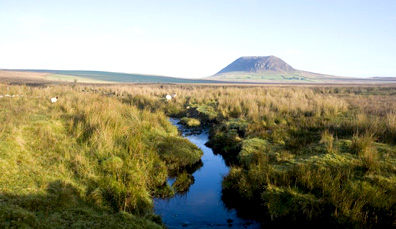
1. Slemish Mountain, County Antrim
The story of St Patrick is a story of endurance. When he was just a teenager, St Patrick was captured in Wales and brought to the island to work as a slave herding sheep on Slemish Mountain, County Antrim. He spent six tough years on these heather-laden slopes with only sheep for company. But it was also here that Patrick found consolation in God. Today, you can walk the 1.2 mile trail up to the summit of Slemish, and look out on to the landscapes that inspired the saint himself.
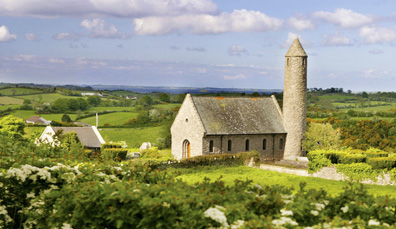
2. Saul Church, County Down
St Patrick escaped his slavery and fled the island, but he was called back to Ireland in a dream, and once he returned, he got busy converting pagans by the thousands. So effective was Patrick, that one new convert donated a barn in which Patrick could hold his services. This is now known as Saul Church and is where Patrick lived leading up to his death. Both a commemorative church and replica round tower now stand on the site near a massive St Patrick statue on Slieve Patrick.
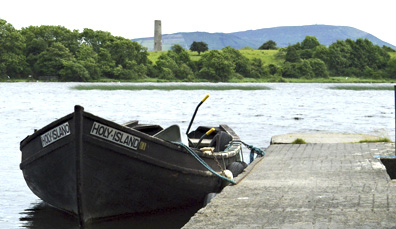
3. Lough Derg, County Donegal
The enigmatic tranquillity of Lough Derg sets the scene for two exceptional stories regarding St Patrick. One tale sees him hunting the last snake in Ireland here and turning the lake red with its blood. The other has Christ dramatically revealing the entrance to Hell to Patrick inside a cave. With drama like that in Lough Derg’s past, it’s little wonder this beautiful spot has been a spiritual destination ever since. With its calm waters, and isolated aspect, it still attracts pilgrims from all over the world.
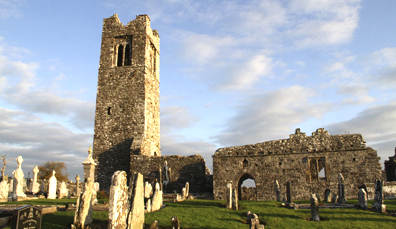
4. Hill of Slane, County Meath
As missions go, Patrick’s plan to convert Celtic pagans in Ireland was not always a popular one. Once, when Druids were celebrating a pagan feast with the ritual Bealtaine fire on the Hill of Tara, County Meath, Patrick chose to defy the reigning High King by lighting his own unquenchable paschal fire on the neighbouring Hill of Slane. Did Patrick suffer for his insolence? Amazingly, no. To answer for his actions, Patrick performed feats and miracles to prove to the King that the Christian God was far more powerful than the pagan god, using the three-leafed shamrock as an example of Christianity.
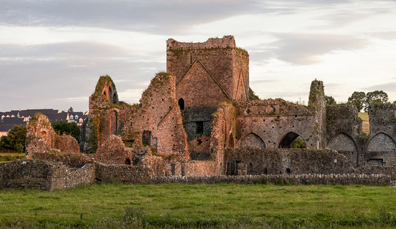
5. The Rock of Cashel, County Tipperary
The Rock of Cashel is one of the most important heritage sites in Ireland. This grassy hill above Cashel is where Patrick baptised Aenghus, the King of Munster – accidently stabbing him in the foot with a crozier while he was at it. This marked the end of paganism and ushered in a new era of Christianity. Amidst the crumbling cathedral walls, look out for the 12th-century St Patrick’s Cross: one face depicts Christ’s crucifixion, while the other shows an image of a bishop – some say it’s St Patrick himself. Nearby St Patrick’s Well in Clonmel (where the saint baptised locals) is said never to freeze in winter.
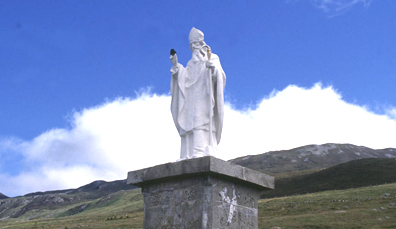
6. Croagh Patrick, County Mayo
Nothing could illustrate the enormity of St Patrick’s impact on Ireland better than the annual pilgrimage by up to 3,000 people on the last Sunday of July (Reek Sunday) to the top of Croagh Patrick barefoot. Translating as “Patrick’s stack” in Irish, it was on this scree-covered mountain that Patrick, echoing Christ’s travails in the desert, fasted for 40 days during Lent. With shoes optional, the all-consuming effort to rise to its peak has been described by one pilgrim as a voyage of curiosity that ended with fulfilment and peace. What better testament to the island’s patron saint could you get?
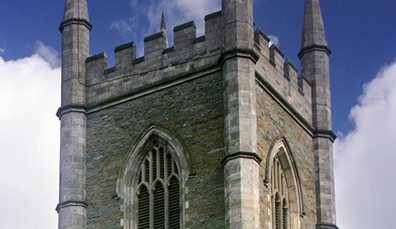
7. Down Cathedral, County Down
Situated on the site of an ancient Benedictine monastery, Down Cathedral is where the mortal remains of Patrick were buried after his death in 461AD. It stands proud on Cathedral Hill, staring out across the town of Downpatrick. The exact site of St Patrick’s burial remains a mystery, but a carved Memorial Stone – made from local Mourne Mountain granite – traditionally marks his grave. The cathedral is now a place of pilgrimage and prayer.
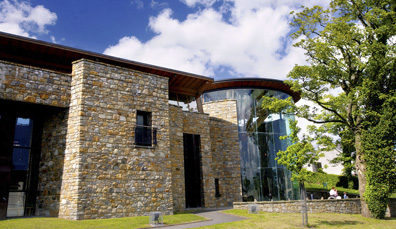
8. Saint Patrick Centre, County Down
St Patrick is at the very heart of Ireland’s Christian heritage, and there are few more engaging places to learn about Patrick than the Saint Patrick Centre (the only exhibition in the world devoted to the saint). Here, you can view collections of art and intricate metalwork from the Early Christian period, as well as intriguing interactive displays. It’s a far cry from the cold and lonely spot on Slemish Mountain but more worthy of the saint’s impact on Ireland.
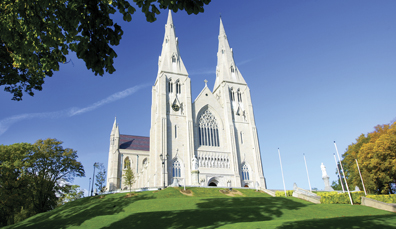
9. St Patrick’s Cathedrals, Armagh city
The beautiful city of Armagh is where you’ll find not one, but two gracious cathedrals named after the great saint. The Church of Ireland cathedral is on a site that in 445AD housed a church built by Patrick; while the neighbouring Roman Catholic cathedral has its roots in medieval times. Legendary High King of Ireland, Brian Boru, who died at the Battle of Clontarf in 1014, is said to be buried in the North Wall of the Church of Ireland Cathedral.





